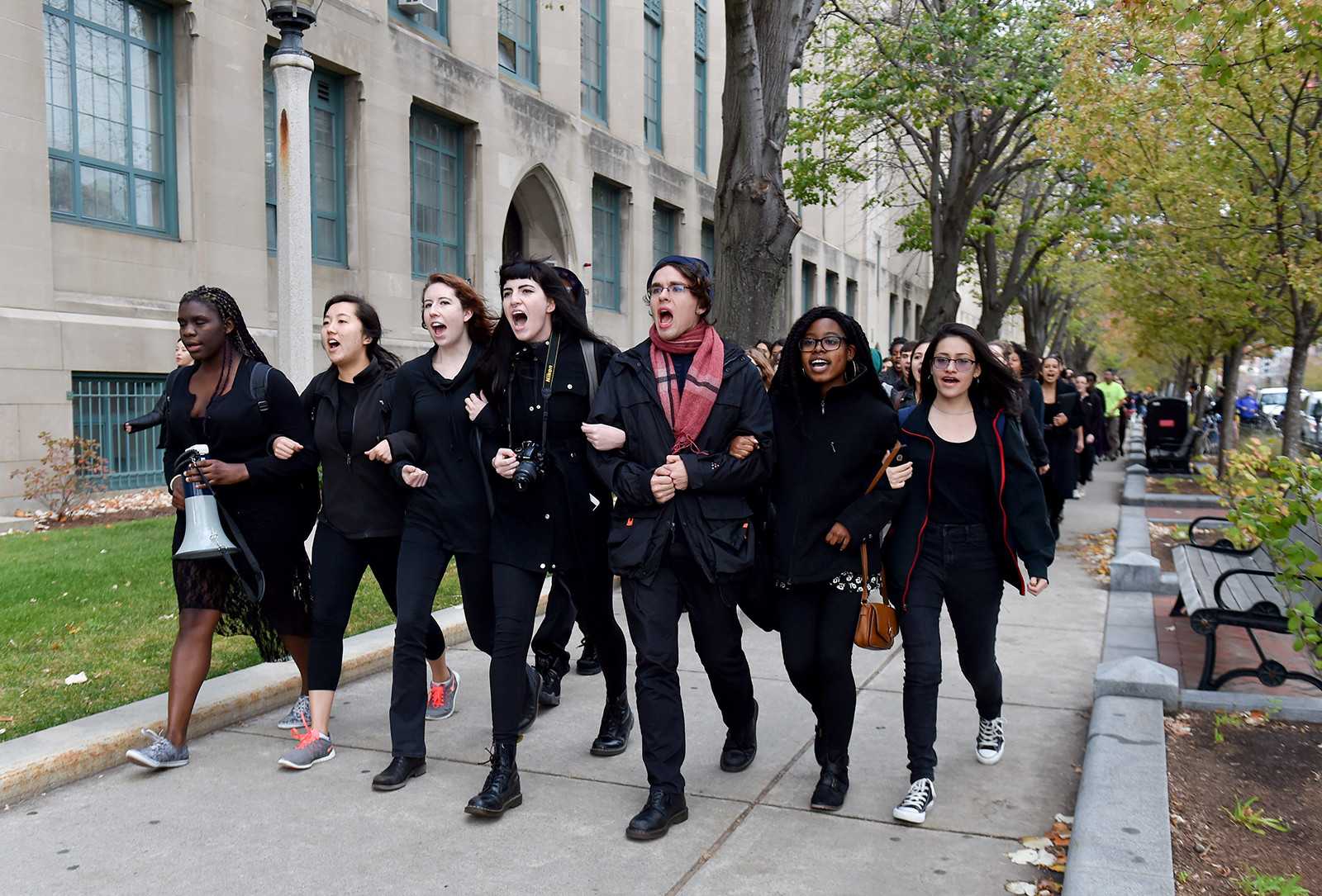“It would not be unheard-of for a student to join us from the state of Wisconsin having had zero people of color in their high school,” Dr. Lori Berquam, dean of students at the University of Wisconsin-Madison, said in a New York Times article.
Under Berquam’s leadership, UW-Madison has joined the ranks of campuses becoming more aware of microaggressions, as outlined in the article published Tuesday. Clark University in Worcester and Wesleyan University are also among those attuned to campus climates and actively making an effort to improve student life, particularly through awareness training of some kind.
One example of a microaggression is, “I’m not a racist. I have several Black friends,” according to a University of Minnesota School of Public Health resource.
Training a new generation of students to be more culturally aware of their peers is necessary, particularly in the age of Black Lives Matter and the discussion surrounding its advocacy. Beginning with acknowledging microaggressions can only help, not only through admonishing their existence but by being mindful their presence.
Microaggressions are, unfortunately, not going to be magically eliminated overnight, so making more individuals aware of their presence, particularly in an environment like Boston University, where people of so many different backgrounds come together, is necessary for change.
A first step of the training could be a mandatory program similar to “AlcoholEdu for College,” which we all had to take before we stepped on campus. Another idea is ensuring a level of compliance, monitored by the completion of the online program. If nothing else, the students-to-be have seen often-used phrases and will be more mindful of their potentially harmful effects.
That being said, if only freshmen are forced to take the course, then 75 percent of the university will have not taken it. Much like the younger sibling imitating the older sibling, if the upperclassmen are not practicing appropriate behavior surrounding microaggressions, it is less likely that the underclassmen will do so.
A mandatory training also ensures that those who should be attending will be attending. Conversations about cultural tensions on BU’s campus are hosted frequently, but mostly only those experiencing the adverse effects attend, rather than those who are actually inflicting the injustice.
A mandatory program could spark some backlash. George Lawlor, a University of Warwick student, went viral last year after sharing an image of himself holding up a sign that said, “This is not what a rapist looks like,” in protest of a workshop focused on sexual consent. This proves that students have to actually want to change, and education is the first step in that cycle.
UW-Madison’s pilot program, which will begin with 1000 freshmen, cost $150,000 to $200,000, according to the Times article. Though the intent of the program is well-aimed, there are far more cost-effective, simple and meaningful ways make the same statement on campuses across the nation. That is a large sum of money and could be better invested.
At BU, tentative education has at least begun. During freshman orientation, after the Common Ground portion of the experience, students watched several scenes from the play “Baltimore,” which focuses on racism on college campuses.
On Tuesday, BU President Robert Brown sent out yet another vague statement on the state of the union. He once again opted for blanket statements like, “Continued violence and unrest … is equally troubling and highlights racial and economic fault lines in our country. We are all saddened and diminished by these various disturbing and tragic events.”
President Brown did not mention Alton Sterling or Philando Castile, and murky condolences like this delegitimize the experiences and feelings of many students of color, and move against the direction of change.
It would go a long way if he were to actually take a definitive stance on contentious conversations like trigger warnings and microaggressions, and start educating students on issues that are inevitable on today’s college campuses.























































































































Nick • Sep 23, 2016 at 4:54 pm
If microaggresion is actually a concern of yours, it probably explains why nobody likes to talk to you…was that too microaggresive?
Truth • Sep 9, 2016 at 1:14 pm
You will never survive in the real world.